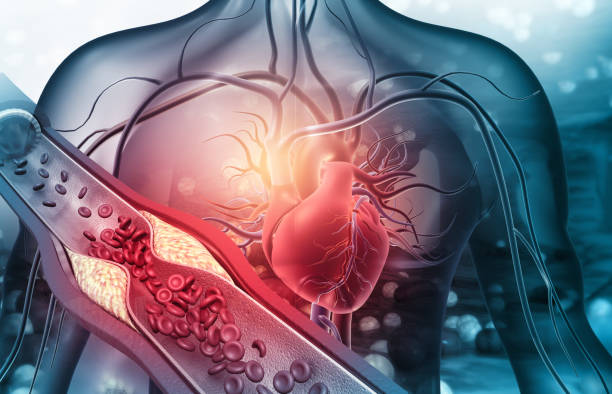Heart Health, Multivitamins
Essential Nutrients for Optimal Heart Health
A healthy heart is crucial for overall health and well-being. A healthy heart is crucial for overall health and well-being.
Heart disease is the leading cause of death in America, and it’s a major reason why more than one-third of Americans die before the age of 70.
Your heart is one of the most valuable parts of your body. It has many functions, pumping blood throughout your veins and arteries to keep you alive. A healthy heart might not always be the easiest thing to obtain, but with a few changes in your diet and lifestyle, you can improve your cardiovascular health in no time at all. Here are some steps you can take to support a healthy heart:
- Exercise Regularly: Aim for at least 30 minutes of moderate exercise, such as brisk walking, most days of the week.
- Eat a Healthy Diet: Focus on whole, nutrient-dense foods, such as fruits, vegetables, whole grains, and lean proteins. Limit processed and high-fat foods.
- Maintain a Healthy Weight: Being overweight or obese can increase the risk of heart disease.
- Quit Smoking: Smoking is a major risk factor for heart disease.
- Limit Alcohol Intake: Excessive alcohol consumption can increase blood pressure and the risk of heart disease.
- Manage Stress: Stress can increase heart rate and blood pressure, so finding healthy ways to manage stress, such as exercise, meditation, or hobbies, is important.
- Get Regular Check-Ups: Regular check-ups with your doctor, including monitoring of blood pressure and cholesterol levels, can help identify and prevent heart disease.
Related: Best Time to Take Different Vitamins
6 Nutrients For A Healthy Heart
The heart is a muscle, and as with all muscles, it requires the right nutrients to maintain optimum function. There are several key nutrients that are important for maintaining a healthy heart. The following are some of the essential nutrients for optimal heart health:
CoQ10, aka coenzyme Q10
Your body uses CoQ10 to help it turn food into energy. It gives your heart the energy it needs to beat 100,000 times per day, enabling it to do so. According to studies, CoQ10 can lessen the risk of atrial fibrillation and ease the symptoms of heart failure.
Patients with heart failure who take CoQ10 have been demonstrated to live longer.
Vitamin D
Your body can fight off various diseases with the aid of vitamin D.
It can aid in blood pressure management and lower the danger of getting diabetes. Both ailments affect cardiovascular health. Heart disease and this vitamin insufficiency are related in one form or another.
In one study, it was discovered that vitamin D raises cytokine levels, which are a type of anti-inflammatory substance. Heart failure has been connected to inflammation.
K1 vitamin
The crucial part that vitamin K plays in blood clotting is well-known. It is crucial for preventing calcification in your arteries.
Calcium intake is crucial. The arteries may calcify or harden if your bones are unable to absorb calcium. Calcium is kept from accumulating in your arteries and transported into your bones thanks to vitamin K1.
Magnesium
Magnesium is a vitamin that helps with energy, metabolism, and muscle contraction, among other things.
It is well recognized to be a natural muscle relaxant that can assist in calming down your heart. According to studies, magnesium can help you prevent hypertension. It has been demonstrated that those with high magnesium levels have a much lower risk of stroke and cardiovascular disease.
Selenium
As an antioxidant, this trace mineral may help prevent oxidative damage.
Heart disease and getting adequate selenium are related, according to studies. The antioxidant capabilities of this substance are suggested to be the cause. Antioxidants aid in reducing inflammation and stop platelets from clumping together.
Studies have also demonstrated a reduction in the risk of cardiovascular death when selenium and Co-Q10 are combined in supplements.
Multivitamins
Consider a multivitamin as a catch-all that provides all of your nutritional needs.
According to studies, taking a high-quality multivitamin may lower the risk of heart attack and cardiovascular disease in women. In the United States, heart disease is the main factor in female fatalities.
According to one study, those who continuously took a multivitamin for more than 20 years decreased their risk of cardiovascular disease by 41%.
Bottom Line
There are plenty of supplements out there that can promote heart health, but it’s important to choose them carefully. It’s important to consume a variety of these nutrients through a healthy and balanced diet, rather than relying on supplements.


